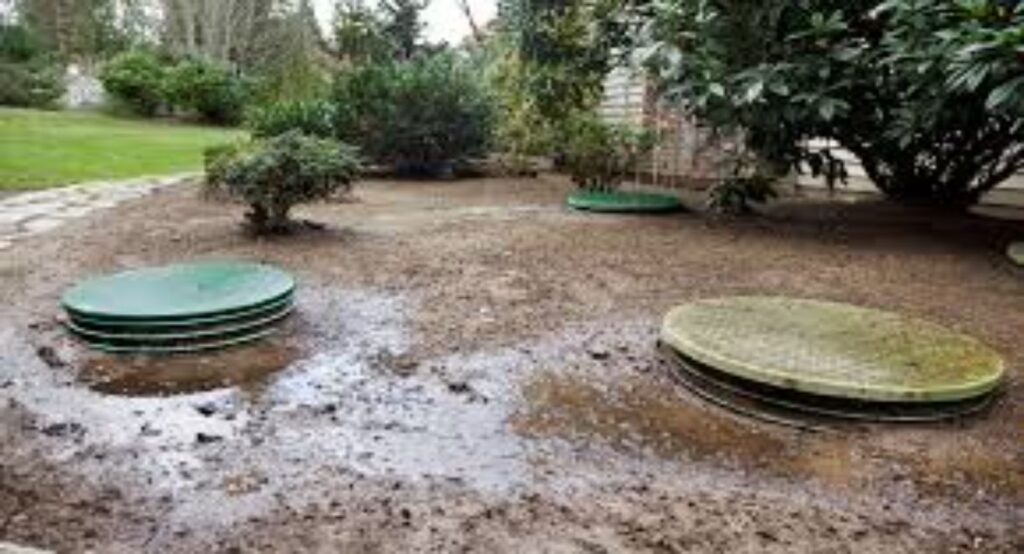The argument between a cesspool and a septic tank can be very significant if you do not have access to a municipal sewerage system.
When you have a lot of lands, it makes sense to take care of the wastewater issue yourself. In such cases, installing a septic tank can cost a lot less than connecting to the city sewer.
The terms “cesspool” and “septic tank” are frequently used interchangeably, but they actually refer to two different things. Septic tanks and cesspools function differently.
What Is A Cesspool
One of the earliest methods of getting rid of human waste is the cesspool. A cesspool is essentially a shallow underground system for disposing of sanitary waste.
Typically, a cesspool’s structure consists of concrete walls with perforated sides and an open bottom. A drain pipe carries wastewater into the cesspool, where it percolates out.
It’s crucial to keep in mind that while cesspools do capture sanitary waste, they do not treat it.
Types Of Cesspools
- Large-capacity cesspool – multiple-dwelling cesspool serving more than 20 persons a day; Residential cesspool – cesspool serving multiple residential units;
- Non-residential cesspool – a cesspool used in a non-residential area, usually separated from public access through structural barriers;
- Mixed-use residential and non-residential cesspools – receiving waste from a business in addition to a residence;
- Cesspools that accept waste besides sanitary waste, such as, from commercial or sanitary processes.
Some nations and states currently forbid the use of large-capacity cesspools due to the risk of ground water contamination posed by cesspools’ untreated wastewater. Therefore, nitrate and coliform bacteria concentrations in drinking water sources will be higher.
Consequently, a cesspool is not an environmentally friendly way to solve the sanitary waste problem, especially if it is large.
Although it may be the least expensive way to get rid of wastewater, it will ultimately have a negative effect. The environment and human health are both impacted by groundwater contamination.
How Long Does A Cesspool Last
When kept up properly, a cesspool can last up to 90 years. Even the most robust systems won’t outlive their design life if you don’t regularly clean and empty your cesspool, though.
What Is A Septic Tank
An underground structure for wastewater treatment is a septic tank.
These tanks are used to collect and treat wastewater from sinks in the kitchen, bathrooms, and washing machines.
Only a small portion of the septic system is the septic tank. In addition, treated water is absorbed in a drain field.
Organic waste is broken down inside the septic tank and separated into solids, floatable waste, and relatively clean wastewater.
Through a network of perforated pipes, the liquid or effluent is released into the drain field. The soil is gradually exposed to the effluent.

How Does It Work
A small, underground treatment and disposal system for waste and septic systems is common. the septic system has two essential parts: the septic tank and the soil absorption area.
Several things happen when household waste enters the septic tank:
1. It is common to refer to this layer of organic solid material as “scum” because it floats to the surface.” The biological conversion of this substance to liquid occurs in the septic tank.
2. Sludge is the term used to describe the layer of inorganic or inert solid materials and bacterial digestion byproducts that settle to the bottom of the tank.”
3. Between the scum and sludge layers, there should only be clear water. This clear water—and nothing but this clear water—should overflow into the area where the soil is absorbed.
How Long Does A Septic Tank Last
Depending on the material used in the system’s construction and under ideal ground conditions, a septic tank can last up to 90 years. The life expectancy of septic tanks made of steel is approximately 15-20 years.
Those made of concrete are 30–40 years; those made of polyethylene (PE) are 20–30 years, and those made of glass reinforced plastic (GRP) are up to 90 years.
Which Is Better
What distinguishes a septic tank from a cesspool? There is one, as you undoubtedly noticed if you carefully read the lines before.
- A cesspool only collects wastewater and disperses it untreated into the soil nearby.
- A septic system, on the other hand, treats the wastewater and guards against groundwater contamination.
Because draining pipes need to be installed, installing a septic system requires a little more work. However, the effort put into treating wastewater is worthwhile because you will have a safer and healthier environment around your home as a result.
So, which is preferable, a cesspool or septic tank? Septic tanks are unquestionably superior to cesspools in the debate.
Reasons To Switch To A Septic Tank
You are probably using a cesspool if your home is older and you are not connected to the municipal sewer system.
There are some benefits to installing a septic system and switching to a septic tank:
- Avoiding the leak of raw sewage into the ground and associated contamination;
- Reducing costs associated with public water bills;
- Lower maintenance as it will need pumping every three years or so;
gaining from your septic tank’s long lifespan. Good quality and well-maintained septic tank can last anywhere from 20 to 40 years.
Solving problems quickly — rather than waiting for the water company to handle issues, you can call a septic plumbing company. Dealing with other issues like a rat infestation of an old drainage system.
Tax incentives — in some regions, homeowners can receive tax benefits if they decide to install a septic system.
You should be aware of the following disadvantages of septic systems, though:
- Antibiotic use can make your septic system’s bacteria nonexistent. Antibiotics are excreted through human waste and eventually reach your septic tank;
- The tiniest crack could allow tree roots to enter your septic system in search of minerals and vitamins. If a root clogs the drain, in the worst-case scenario you can have backflow into your home;
- a limitation on flushing materials other than toilet paper and human waste. While using the city sewer, this practice is also not advised.
When everything is taken into account, switching to a septic system is a great idea, especially if there are tax incentives. A septic system has more advantages over a cesspool if you are concerned about the environment.





